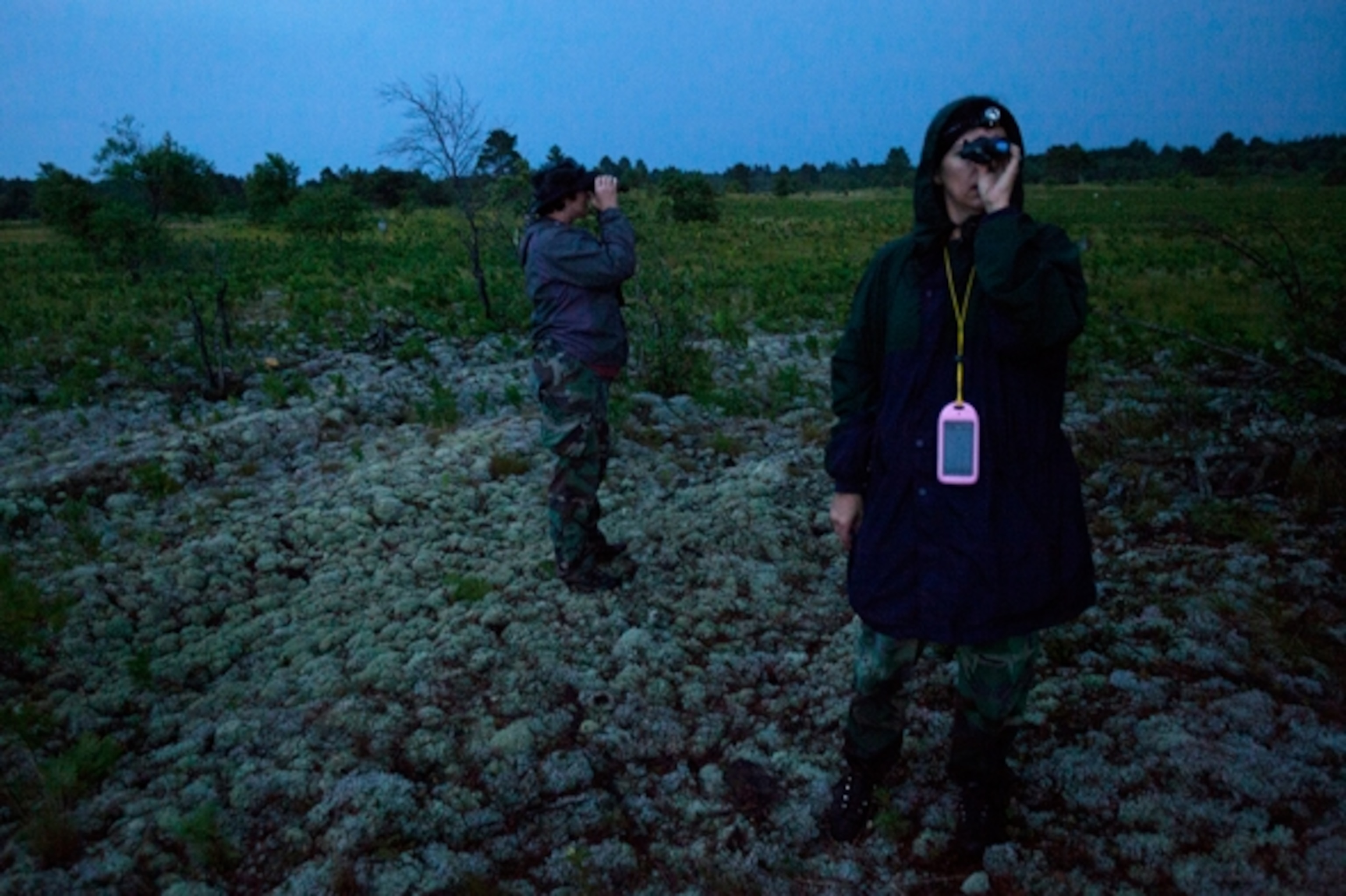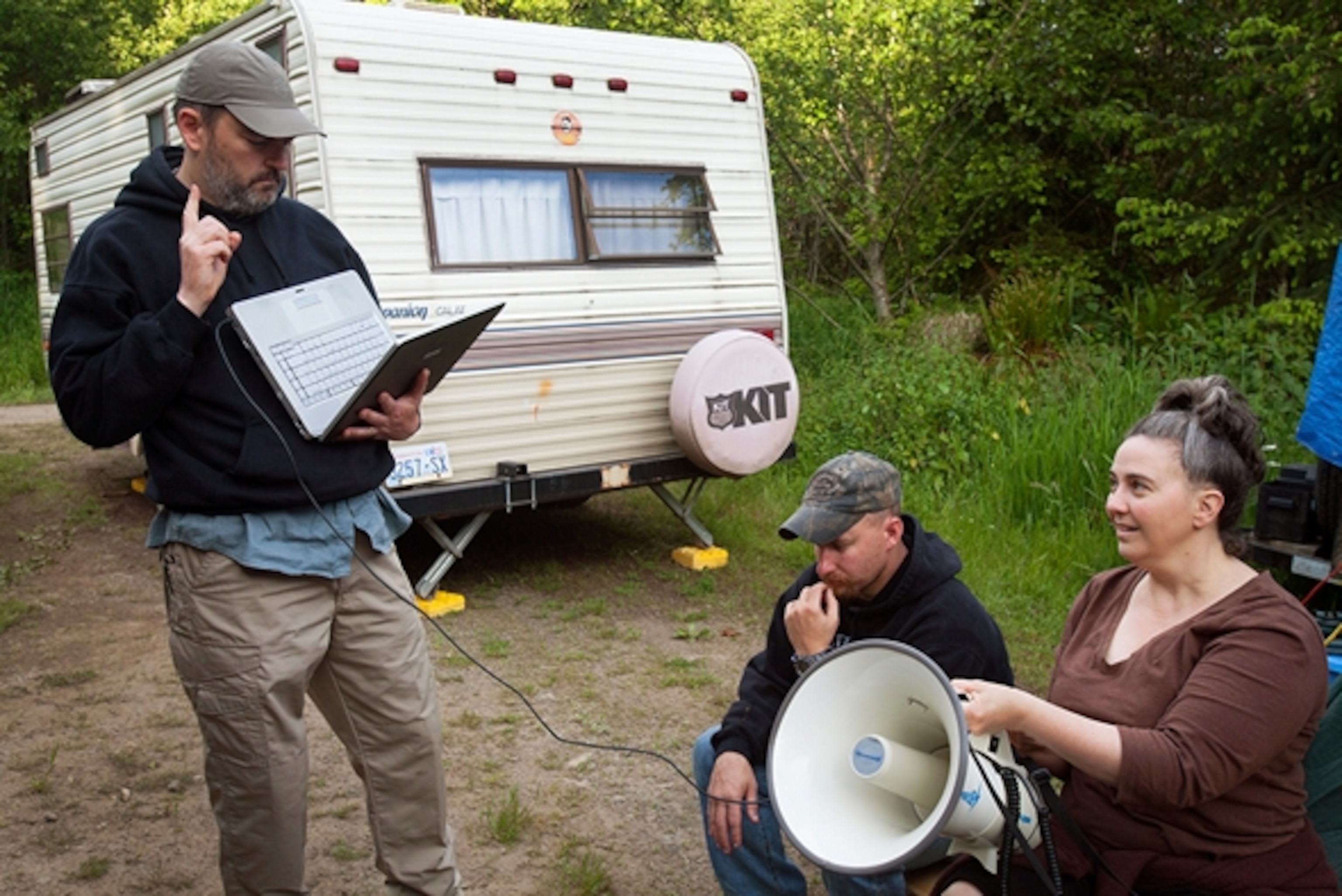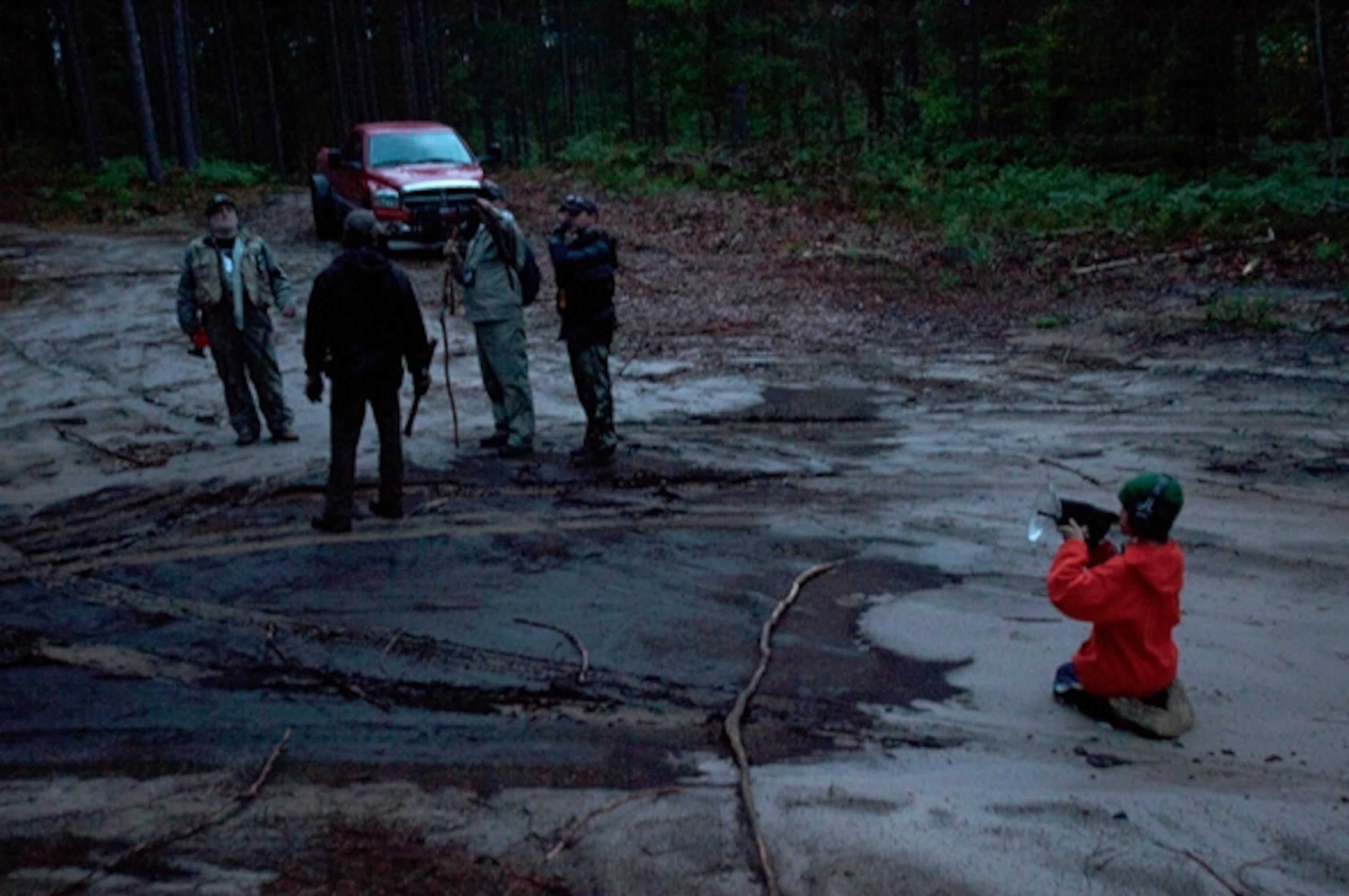
Desperately Seeking Sasquatch
“I thought how terrible the nights must have been in a time when men knew the things were there and were deadly. But no, that’s wrong. If I knew they were there, I would have weapons against them, charms, prayers, some kind of alliance with forces equally strong but on my side. Knowing they were not there made me defenseless against them and perhaps more afraid.” – John Steinbeck, Travels With Charley
Twice.
The first time was in the Cascades in Washington, the second a little over a month later on Michigan’s Upper Peninsula. Both expeditions were organized by the Bigfoot Field Researchers Organization (BFRO).
‘Squatchers — as they call themselves — are a diverse group united only, perhaps, by an affinity for camouflage, a distaste for hoaxers, and a fascination with all things ‘squatch.
And I met scores of them: a teenage barrel-racing champion from New Mexico, a machinist at Boeing, a veteran on a program funded by the Wounded Warrior Project, a high-school history teacher, a writer, a pastor, and a man from Sweden who traveled across an ocean to be there.
Many had been motivated to participate in an expedition because they had actually seen a Sasquatch with their own eyes. Some, like me, were skeptics. The rest fell somewhere in the middle.

In the Cascades, someone had placed several objects on a tall, crumbling stump not far away from base camp. They were gifts: a glow bracelet, corn, an apple, two seashells the size of fists.
I sat on a folding chair with the ‘squatchers under a billowing tent, and listened as believers engaged in existential debates (Was Bigfoot a flesh-and-blood species, or something supernatural?) and recalled their encounters — sightings, offerings that had been moved, strange noises and smells.
We humans have the ability to talk ourselves out of accepting as a fact many things, but believers will tell you that once you’ve seen a Sasquatch it’s difficult to return to the comfort of skepticism.
I was admonished, gently, for using the word “crazy” when what I meant to say was “wow.” We don’t use that word here, I was told. Say “unusual.” Say “amazing.” We get called crazy enough. While talking with ‘squatchers on the expedition in Michigan, one man confided that his wife, a science teacher, likes to tease him by asking if he’s going out to look for unicorns again.

“We’re all looking for something that everyone else says doesn’t exist,” he would tell me later, “but the hunt is what’s cool.”
At night, we split into small groups and walked through the dark forest, headlamps off, on winding logging roads lined with moonlit daisies.
We stood still and listened until the silence made every approaching wood rat sound like a coyote coming to savage us all. We peered through thermal imagers and night-vision scopes and stared into the dark searching for glowing eyes the size of silver dollars. We knocked on trees with ax handles, played audio recordings of whale songs, and bellowed wooo-ups! into the blackness with hands cupped around our gaping mouths.
We waited for a response. To see or hear something we could not explain away.
At one point we heard a long, distant-sounding wail coming from the empty road behind us, and I clutched at the nearest person’s fleece-covered arm. Our group turned, slowly, toward the sound to see one of our comrades trying to silence the audio recorder that had accidentally started playing whale songs in her pack.

- National Geographic Expeditions
I’d never done this before, been so out in the open in such complete darkness. Most of us, when faced with an unfamiliar noise in the woods, run for our tents, as if cloaking ourselves in sheets of plastic and closing our eyes is any protection at all. ‘Squatchers don’t do this. They go out into the forest looking to make that connection — albeit with a super sneaky 8-foot-tall omnivorous woodland ape that may or may not exist — to confront the darkness.
After our walk we settled around a fire and stayed up until dawn, talking some and staring out into the blackness around us. I felt sure I was going to see something. At the same time, my fear made me reject that notion, just as I try not to think too hard about bears when I’m camping in bear country.
But there was a part of me that hoped to see something that would force me to believe. I wanted to believe, and still do, that there is something out there in the wide world that has eluded our ability to control and explain — that there is still some mystery to be solved.
In addition to documenting what Americans do when most everyone else is asleep, National Geographic Young Explorer Annie Agnone is pursuing an M.F.A. in creative writing at the University of Alabama. Follow her story on Instagram @annieagnone.
